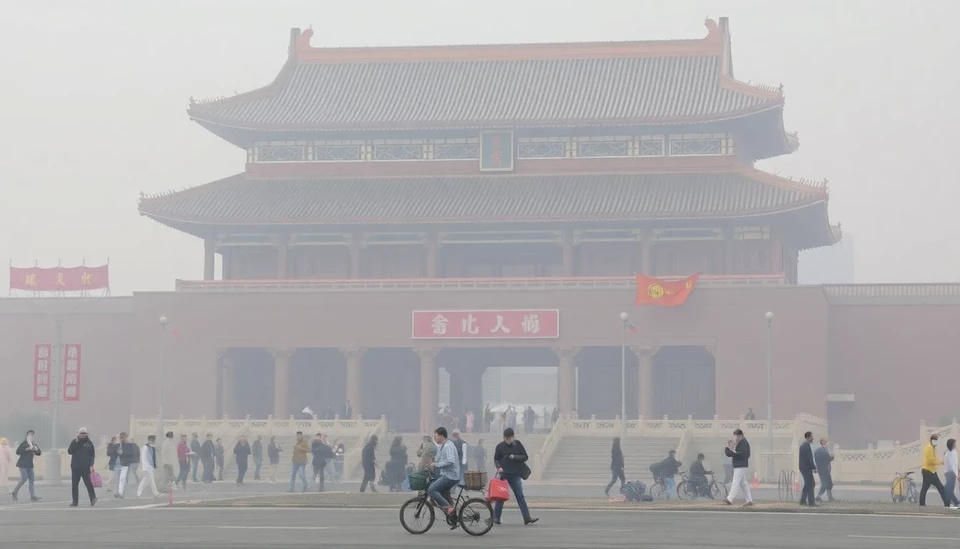
Beijing, the capital city of China, is grappling with an alarming surge in air pollution levels, which have reached the highest severity experienced in over five months. As environmental indicators signal serious concerns, residents are experiencing hazardous smog conditions that are raising public health alarms and triggering government responses.
Recent reports indicate that the concentration of PM2.5 particles, a type of particulate matter considered especially harmful to human health, has soared well above the safety limits recommended by the World Health Organization. On many days this week, readings exceeded 200 micrograms per cubic meter, plunging the city into a thick haze and causing inconveniences across various sectors, including transportation, outdoor activities, and daily life.
Authorities in Beijing have attributed the spike in pollution levels to several factors, including a combination of weather patterns, seasonal industrial emissions, and increased vehicular traffic. The city has experienced stagnant weather conditions, which trap pollutants close to the ground rather than dispersing them into the atmosphere, exacerbating the pollution issue. As a result, the Beijing Environmental Protection Bureau has issued advisories urging citizens, particularly vulnerable groups such as children, the elderly, and those with pre-existing health conditions, to minimize outdoor exposure.
The air quality crisis has prompted city officials to implement contingency measures aimed at controlling emissions. This includes urging factories to scale back production and enforcing stricter regulations on vehicle emissions. The consequences of such elevated pollution levels extend beyond immediate discomfort; health experts warn of potential long-term effects including respiratory diseases, heart conditions, and increased rates of hospitalizations related to air quality.
Community impact is evident as many residents have spontaneously taken to wearing masks while commuting or even staying indoors to avoid exposure. Schools have reported adjustments to outdoor activities, opting instead for indoor alternatives to safeguard students from harmful exposure, all of which reflects a broader societal concern regarding air quality and its implications on daily living.
Despite efforts by the Beijing government to improve air quality in recent years, including the promotion of electric vehicles and greener public transport options, the progress appears to be threatened by periodic spikes in pollution due to broader environmental uncertainties. Experts emphasize that immediate and sustained actions are necessary to reverse the current trajectory of air quality in the capital.
As the situation continues to develop, residents are urged to stay updated on air quality reports and adhere to the guidelines issued by health authorities. The ongoing challenges posed by air pollution in Beijing underline the need for collaborative efforts from government bodies, industries, and the public to work towards sustainable solutions and a cleaner environment.
In summary, Beijing is facing one of its worst air pollution crises in recent months, prompting urgent action from government officials and raising concerns among its residents regarding health and well-being.
#BeijingPollution #AirQuality #EnvironmentalCrisis #PM2.5 #HealthConcerns #PollutionControl #SustainableSolutions #ClimateAction
Author: Sophie Bennett




